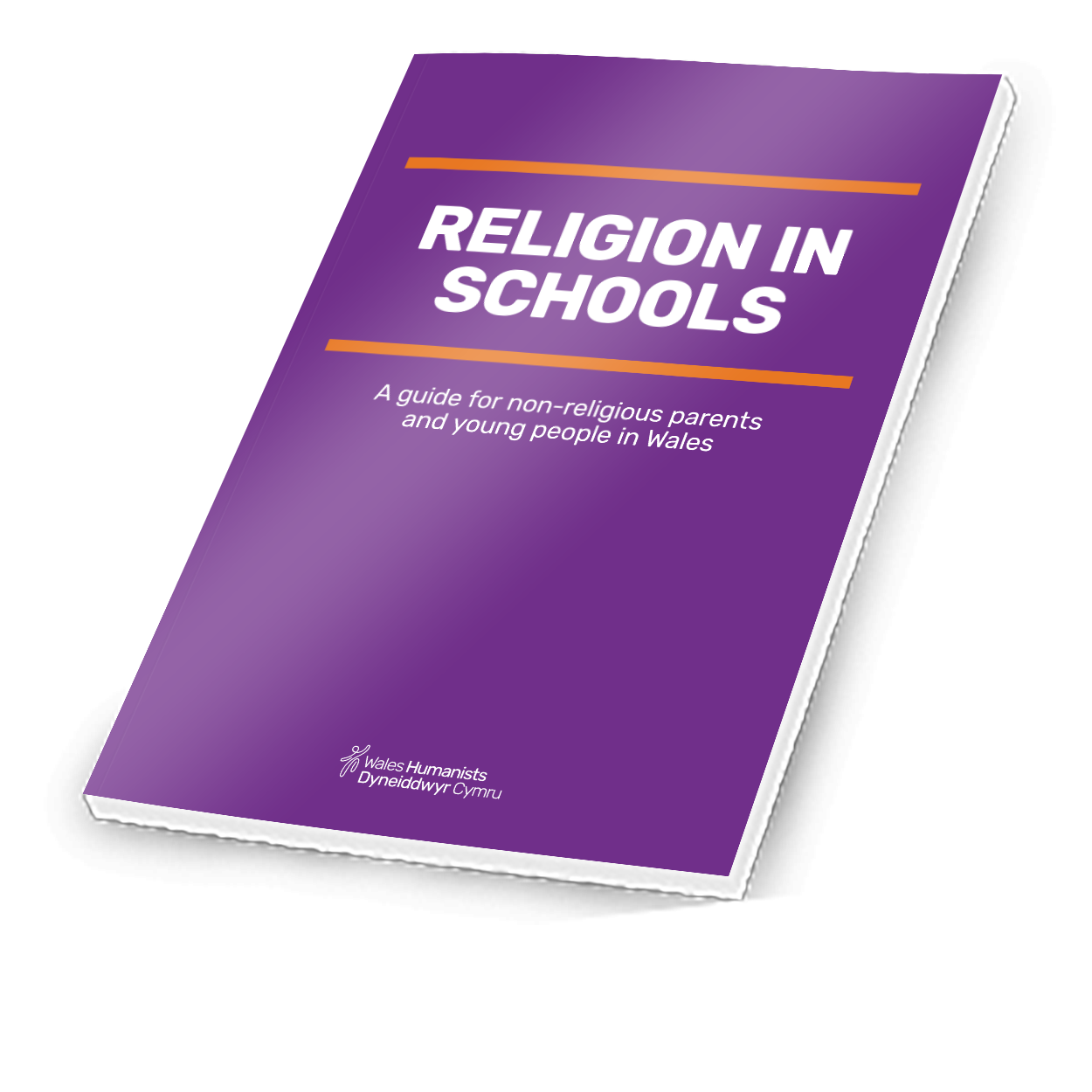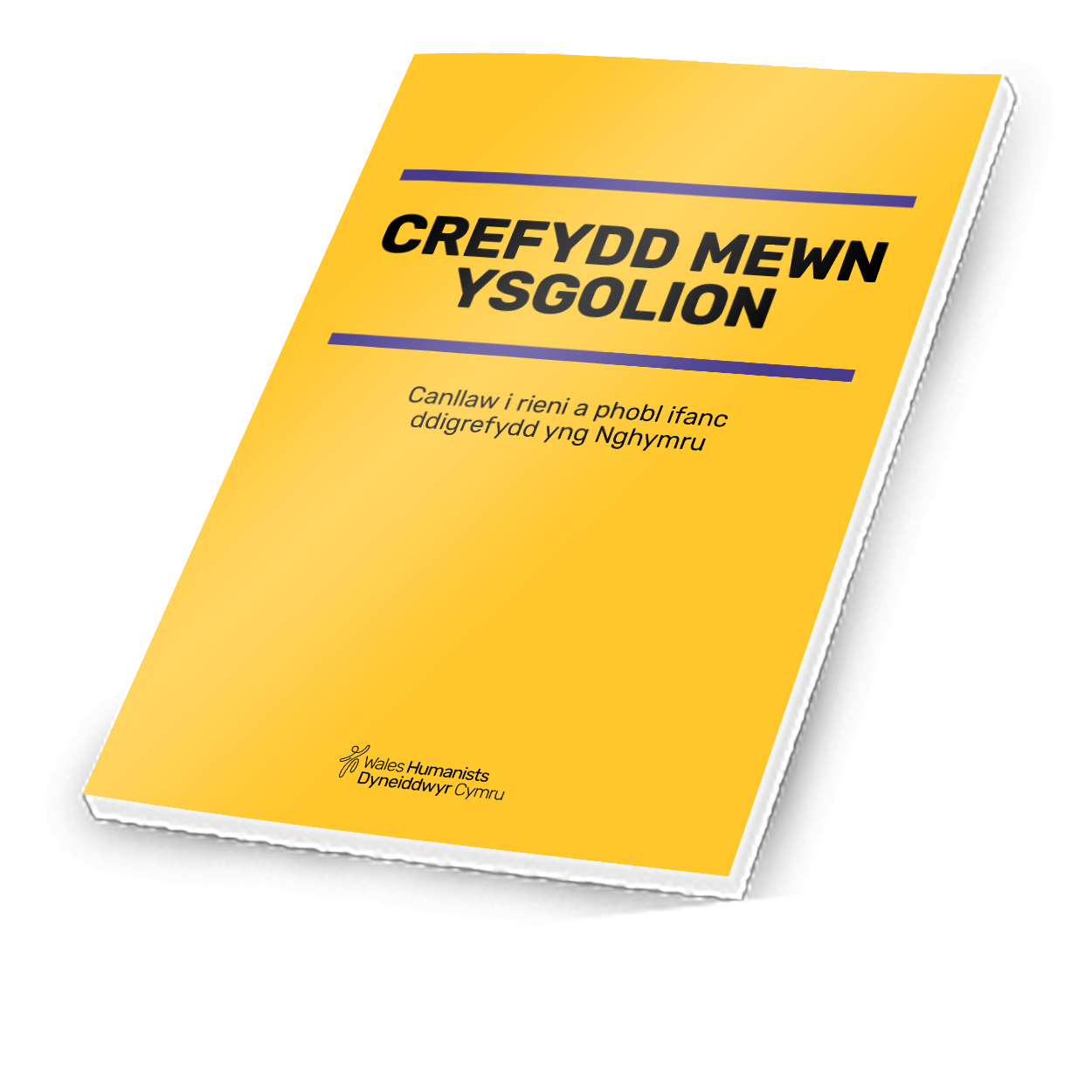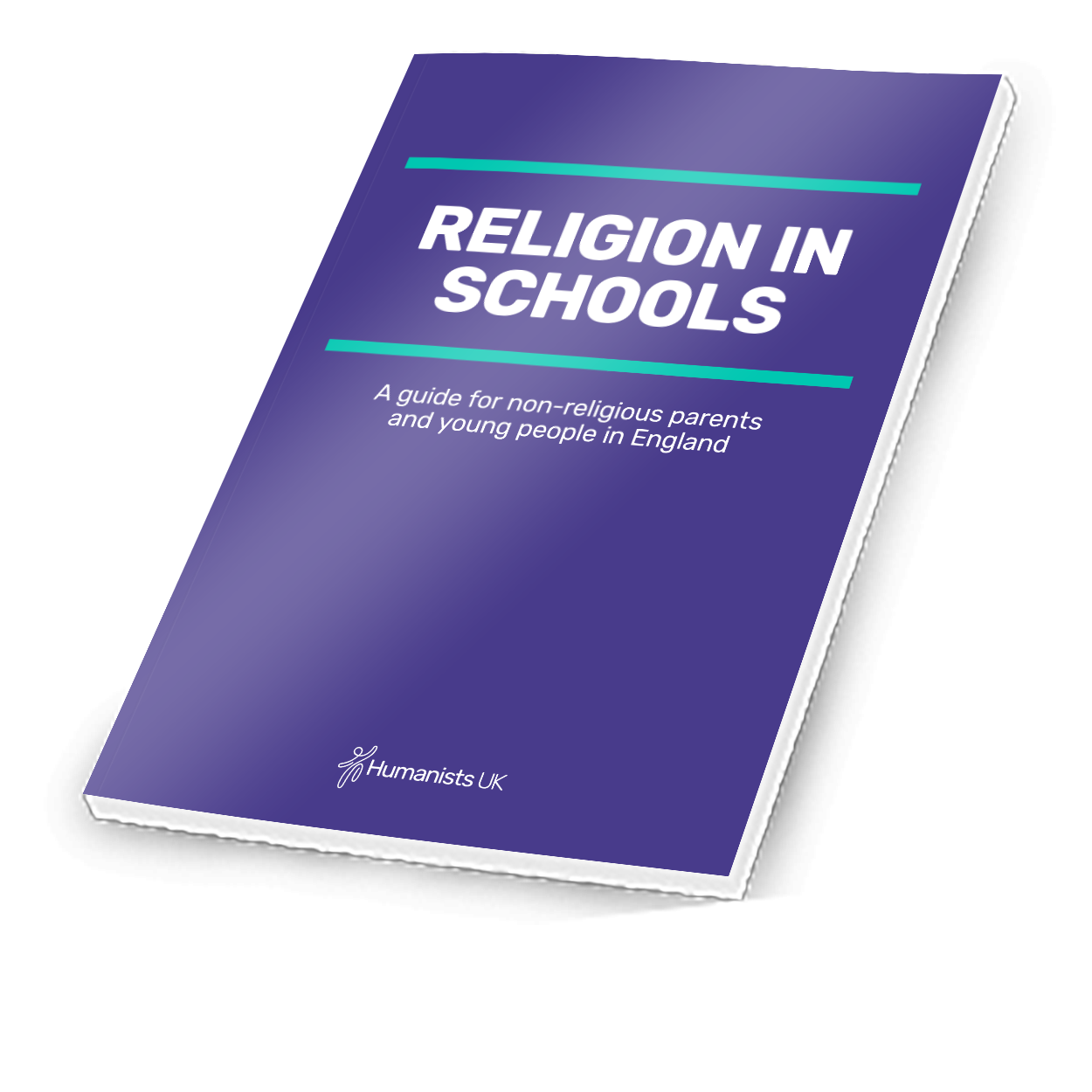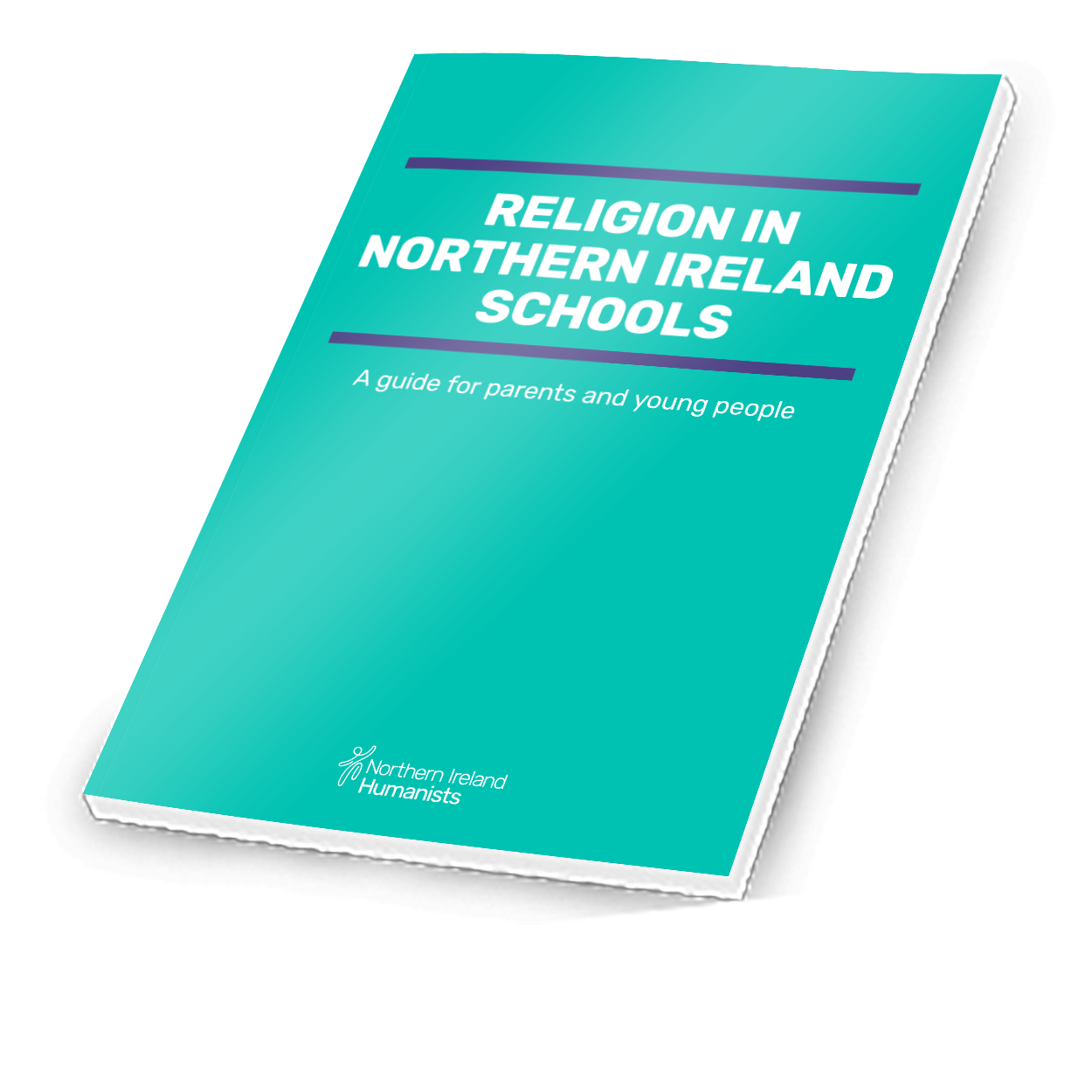 Following primary schools National Offer Day, Wales Humanists has published a comprehensive guide on how to navigate religion in schools in Wales. It has done so for two reasons. First, in response to the latest Census figures, released in January, that show that in 2021 most people in Wales under 74 and over 60% of those aged under 40 ticked ‘No religion’. And second, to support the new Curriculum for Wales, which has been reformed to explicitly include humanism equally to the major religions.
Following primary schools National Offer Day, Wales Humanists has published a comprehensive guide on how to navigate religion in schools in Wales. It has done so for two reasons. First, in response to the latest Census figures, released in January, that show that in 2021 most people in Wales under 74 and over 60% of those aged under 40 ticked ‘No religion’. And second, to support the new Curriculum for Wales, which has been reformed to explicitly include humanism equally to the major religions.
The guide, called Religion in Schools – a Guide for Non-Religious Parents and Young People in Wales, is being released in English and Welsh. It offers a wealth of information on topics such as: school ethos and admissions, religion values and ethics (RVE), collective worship, and the teaching of creationism and so-called ‘intelligent design’ in science. Also released this week is a new guide for England from Humanists UK, and a guide for parents on religion in schools in Northern Ireland.
Religion in schools… in England, Wales, and Northern Ireland.
We’ve published four guides for non-religious parents and young people. Download the guides below.
Why the guide is needed
In 2015 the High Court in England ruled that ‘the state must accord equal respect to different religious convictions, and to non-religious beliefs’ such as humanism in RE. The Welsh Government subsequently changed the law and curriculum to reflect that.Similarly, in 2019, non-religious parents in Oxfordshire successfully sued their school into introducing a meaningful, inclusive alternative to Christian worship for their children. But although the law is the same in Wales, the Welsh Government has refused to take the matter up nationwide. This legal uncertainty leaves parents and young people exposed to ongoing discrimination with little recourse to challenge it. It is hoped that this guide will help them do so.
Publication of the free resource is timely, not just because of the new Curriculum for Wales, but also because this week parents of primary age children across Wales will be discovering whether they have been accepted into their preferred school. Despite the roll-out of inclusive RVE in this new curriculum – which in any case will take several years before it applies to all age groups – some faith schools will retain the right to teach biased RE, as well as discriminate in their admissions policies against the non-religious.
Every year around this time Wales Humanists hears from non-religious parents, or those of a different faith to the ethos of the school, who are frustrated that they have been allocated a faith school against their wishes. Conversely, some parents may be content to send their child to a local faith school, but are unable to do so because they do not meet the religious admissions criteria – resulting in a long trip to get to another school further away. Both of these situations would be avoided if the religious bias on curriculum content and admissions in faith schools were abolished. However, until that happens, guides like these are essential reading for people navigating the complex web of school types and the different religious privileges that can apply in each of them.
Moreover, while approximately one sixth of state funded schools are faith schools, there is also religious bias even in schools without a religious character – due to requirements for daily collective worship in all schools. Yet as we know from the latest census there are now more non-religious people than Christians in Wales: our school system is not keeping pace with demographic change. Therefore the guide is useful for all parents, whether their child’s school – or prospective school – has a faith ethos or not.
Ceri, a parent from Swansea, said:
‘…This is a super resource that should be required reading for any parent of school age children. Until I read it, I had no idea of the extent to which religious privilege still abounds in our schools. I now feel much better able to engage confidently with my child’s school about religious matters.’
Wales Humanists Coordinator Kathy Riddick commented:
‘I’m thrilled that we are publishing this guide today. The Census results couldn’t be clearer: Wales is now a majority non-religious country. The Welsh Government is to be praised for noting this change in demographics and reforming the curriculum to make the teaching of humanism a compulsory part of the new RVE subject. But the implementation is not immediate: it’s taking place over a number of years. Parents need to know how this will be phased in, and how it will affect their children – this new guide does just that. Parents may also need to take steps to make sure that the new curriculum really is inclusive of humanism.
‘And despite the good curriculum reform, there remains plenty of religious bias in the Welsh school system – not least the requirement for daily collective worship. So I hope that the guide will also empower parents with the knowledge they need to campaign for change on that front too.’
What the guide covers
The guide, which is available in English and Welsh, kicks off with a comprehensive reference table, setting out all the different school types and what they can and can’t do in terms of religion. There follow chapters on RE / RVE, humanism resources, collective worship, school admissions, creationism / evolution, and frequently asked questions. The guide also covers topics like the legal right of parents and young people to withdraw from religious education and collective worship, and the importance of providing inclusive assemblies for those who do not wish to participate in worship. Parents and young people are signposted to all the relevant legislation, and given hints and tips about how to engage positively and constructively with schools and other bodies.
Notes:
For further comment or information, media should contact Wales Humanists Coordinator Kathy Riddick at kathy@humanists.uk or phone 07881 625 378.
Download guides in English and Welsh.
Read more about our work on faith schools, collective worship, RE, Understanding Humanism, and Creationism/Evolution.
Wales Humanists is part of Humanists UK. Humanists UK is the national charity working on behalf of non-religious people. Powered by 100,000 members and supporters, we advance free thinking and promote humanism to create a tolerant society where rational thinking and kindness prevail. We provide ceremonies, pastoral care, education, and support services benefitting over a million people every year and our campaigns advance humanist thinking on ethical issues, human rights, and equal treatment for all.




